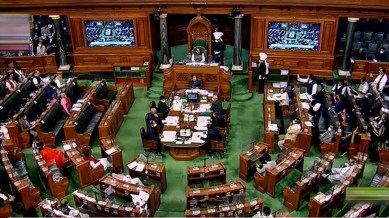An award-winning journalist with 14 years of experience, Nikhil Ghanekar is an Assistant Editor with the National Bureau [Government] of The Indian Express in New Delhi. He primarily covers environmental policy matters which involve tracking key decisions and inner workings of the Ministry of Environment, Forest and Climate Change. He also covers the functioning of the National Green Tribunal and writes on the impact of environmental policies on wildlife conservation, forestry issues and climate change. Nikhil joined The Indian Express in 2024. Originally from Mumbai, he has worked in publications such as Tehelka, Hindustan Times, DNA Newspaper, News18 and Indiaspend. In the past 14 years, he has written on a range of subjects such as sports, current affairs, civic issues, city centric environment news, central government policies and politics. ... Read More
In 153 LS seats, forest rights likely to be major poll issue
A research report by the Land Conflict Watch (LCW), a New Delhi-based data research agency, also shows in these 153 parliamentary seats, a total of 264 “land conflicts” were recorded.

Distribution of land ownership rights and other issues related to the landmark 2006 Forest Rights Act are likely to be a major electoral issue in 153 of the 543 Lok Sabha constituencies, and could be the deciding factor in some of these, a new analysis by a group of researchers working on tribal and forest rights revealed.
A research report by the Land Conflict Watch (LCW), a New Delhi-based data research agency, also shows in these 153 parliamentary seats, a total of 264 “land conflicts” were recorded. These conflicts pertained to non-implementation of the provisions of Forest Rights Act (FRA) and forcible evictions of forest dwelling communities before settling of community forest rights.
monthly limit of free stories.
with an Express account.
The report highlighted the need for political parties to address issues of marginalised groups, co-author Tushar Dash, a forest rights researcher, said. “In many of these constituencies, forest rights are an issue for communities who have been demanding legal recognition for their rights. Post-2019, there have been changes in the forest laws, policies which directly impact the rights of such communities. As we look at 2024 elections, these constituencies and people in these constituencies are going to play an important role and it is important to see how the political parties, both, national and regional, respond to the issues of such voters,” Dash said.
The Forest Rights Act of 2006 promises to give ownership rights to the forest dwellers who have been living on their land for at least three generations or 75 years. The law also offers community ownership rights over forest lands that these people are dependent upon for their livelihood.
More than 15 years after the enactment, the progress on recognising ownership rights of the forest dwellers has not been completed. In fact, just 48.14% of the claimants, nationally, have been given land ownership certificates, 34% claims rejected and 17.85% claims pending at various levels. Progress on community rights has been even slower.
In the 153 seats where forest rights are a potentially important poll issue, 42 are reserved for STs, 20 for SCs and 91 unreserved. The BJP won 103 of these 153 seats in the 2019 elections, Congress 11 and regional parties such as Shiv Sena, BJD, NCP, YSR Congress and TRS won the remaining 39.
The BJP and Congress were in a direct fight in 74 of the 153 seats, across 13 states, of which BJP won 69 and Congress five, the report said.
To identify LS seats where forest rights could play an influential role in polls, an estimate of electors who are potentially eligible for rights under the FRA, 2006, and an estimate of the STs and SCs voters, eligible for community forests rights, was calculated. The LCW’s report on conflicts shows that of the 781 land conflicts mapped across the country, 187 cases emerged from 69 parliamentary constituencies reserved for SCs and STs. Most of these conflicts revolved around use of village commons, non-implementation of FRA provisions and evictions.
While the BJP is yet to release its party manifesto, the Congress manifesto promises to set up a national mission for effective implementation of the FRA through a dedicated division, separate budget and action plans. The central government, meanwhile, had launched the Pradhan Mantri Janjati Adivasi Nyaya Maha Abhiyan (PM-JANMAN) with an outlay of Rs 24,000 crore last November. The aim of scheme is to provide housing, roads, sanitation, clean drinking water electricity and vocational education to tribes falling in the Particularly Vulnerable Tribal Groups.